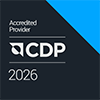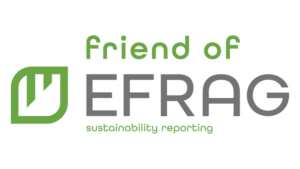Erweitertes Nachhaltigkeits-Engagement mit CCF und UNGC Bericht
Kunde: GREIF Mietwäsche
Kategorie: Dienstleistungen
Datum: Dezember 2017
Spezialisiert auf die Hotellerie und Gastronomie, ist GREIF Mietwäsche Partner vieler Hotelketten und Familienbetriebe in ganz Deutschland. Das zertifizierte Mietwäschesystem erfüllt höchste Anforderungen im Blick auf Betreuung und Qualität. Aus der Bügelstube, die Franziska Steinbichler im Jahr 1922 in Augsburg gründete, hat sich ein modernes Textilservice-Unternehmen mit zehn Standorten in der gesamten Bundesrepublik entwickelt. Mit 1.300 Mitarbeitern und leistungsfähigen Wäschereien in ganz Deutschland ist GREIF Mietwäsche heute einer der Marktführer in diesem Bereich.
Martin Greif
Geschäftsführer GREIF Mietwäsche
„Die DFGE hat uns bei der Berechnung des Corporate Carbon Footprints unterstützt. Durch die Berechnung haben wir nun ein umfassendes Bild davon erhalten, wodurch unsere Emissionen verursacht werden und welche Einsparmaßnahmen die meisten Auswirkungen haben.“
Herausforderungen
Ausbau des Nachhaltigkeitsmanagements
GREIF Mietwäsche mit Hauptsitz in Augsburg zeichnet sich bereits durch zahlreiche Nachhaltigkeitsaktivitäten aus, die kontinuierlich ausgebaut werden. Die DFGE konnte hier im Jahr 2015 zum ersten Mal unterstützen, als GREIF beschloss, einen Carbon Footprint für das eigene Unternehmen zu berechnen. Bei einer Berechnung des sogenannten Corporate Carbon Footprint geht es um die Erfassung klimarelevanter Emissionen, die durch Geschäftstätigkeit in Unternehmen und ihren Standorten entstehen. Die DFGE arbeitet hierbei mit dem DFGE Top-Down Ansatz, der es ermöglicht, in wenigen Wochen einen verlässlichen Wert der unternehmensweiten Treibhausgasemissionen zu ermitteln.
Im ersten Jahr wurde mit den Daten aus dem Kalenderjahr 2014 gearbeitet und der Corporate Carbon Footprint auf Basis der Scope 1 (direkte Emissionen aus Brennstoff- und Kraftstoffverbrauch) und Scope 2 (indirekte Emissionen aus Energiebezug) Werte berechnet.
Die Zusammenarbeit wird seither kontinuierlich fortgesetzt und die Berechnung auf Wunsch von GREIF verfeinert. GREIF wurde auf die DFGE über eine Empfehlung eines langjährigen Kunden aufmerksam.
Lösungen
Berechnung von Scope 3 Emissionen und Darstellung der Nachhaltigkeitsaktivitäten in Form eines Nachhaltigkeitsberichts
Um die Berechnungen immer genauer, mit geringeren Fehler-Bandbreiten, erstellen zu können, ist es notwendig, kontinuierlich die Datensammlung auszuweiten. Nach dem ersten Corporate Carbon Footprint mithilfe der Berechnung von Scope 1 und 2 Daten wurde im Jahr 2016 beschlossen, die Scope 3 Emissionen miteinzubeziehen. Dieser Vorgang ist von hoher Komplexität, da dabei alle indirekten Emissionen aus der vor- und nachgelagerten Wertschöpfungskette (relevante, indirekte Emissionen) berücksichtigt werden müssen. Gleichzeitig war es das Ziel, den gesamten Carbon Footprint auf Standortebene aufzuschlüsseln. Die DFGE konnte hierbei erneut durch Anwendung des DFGE Top Down Ansatzes zügige Ergebnisse liefern, welche einen detaillierteren Blick auf die Emissionsquellen von GREIF ermöglichen.
Jedoch war GREIF in den letzten Jahren nicht nur im Bereich Emissionsreduktion sehr aktiv: um die verschiedenen Nachhaltigkeitsaktivitäten des Unternehmens strukturiert aufzubereiten, hat GREIF beschlossen, einen Nachhaltigkeitsbericht zu erstellen. Daher ist das Unternehmen, nach Beratung durch die DFGE, im Jahr 2017 dem UN Global Compact (UNGC) beigetreten und wird im Rahmen dessen künftig einen jährlichen Nachhaltigkeitsbericht (COP – Communication on Progress) erstellen.
Im Fokus dieser Initiative der Vereinten Nationen steht die Einhaltung der 10 Prinzipien aus den Bereichen Menschenrechte, Arbeitsbedingungen, Umweltschutz und Korruptionsbekämpfung. Die mittlerweile mehr als 12.000 Teilnehmer weltweit verpflichten sich mit ihrer Teilnahme am UNGC zur aktiven Förderung dieser 10 Prinzipien und werden dazu angehalten, einmal im Jahr ihren Fortschritt dazu in Form eines öffentlichen Berichts darzulegen. Zum einen liefert die UNGC den Unternehmen damit einen standardkonformen Nachhaltigkeitsberichtsrahmen, und zum anderen bietet sie eine Art Siegel, welches die unternehmerische Verantwortung der Teilnehmer belegt.
Die DFGE hat für GREIF die komplette Abwicklung der UNGC Berichterstattung übernommen. Mit Hilfe der 10 Prinzipien wurden die für GREIF wesentlichen Schwerpunkte bestimmt und für jedes Prinzip die nötigen Richtlinien, Maßnahmen, Monitoring-Möglichen, Resultate und zukünftigen Ziele zusammengetragen. So wurden bestehende Prozesse in den UNGC Rahmen eingebettet, aber auch etwaige Lücken identifiziert, die dadurch künftig Schritt für Schritt geschlossen werden können. Der erste Fortschrittsbericht wurde im November 2017 als eigener Nachhaltigkeitsbericht veröffentlicht.
Ergebnis
Kontinuierliche Umsetzung und Kommunikation einer „grünen“ Mission
Diese Qualitätsverbesserung des Corporate Carbon Footprint sowie die Erstellung des UNGC Nachhaltigkeitsberichts hilft GREIF bei der Planung von weiteren Nachhaltigkeitsaktivitäten, da so gezielt ausgewählt werden kann, an welchen Stellen Maßnahmen möglich und sinnvoll sind. Die DFGE wird GREIF Mietwäsche auch weiterhin beim Ausbau des Bereiches Nachhaltigkeit betreuen und unterstützen.
„Durch die Resultate der diesjährigen Berechnung durch die DFGE haben wir gedanklichen Input für weitere Projekte bekommen, die unsere Nachhaltigkeitsaktivitäten steigern können und uns somit helfen, unseren aktiven Beitrag zum Umweltschutz weiter auszubauen.“ so Mario Neipp, Leiter Marketing & Innovation bei GREIF Mietwäsche







